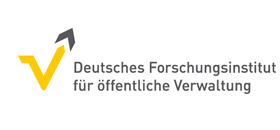The Principles of Administrative Punishment under the ECHR
- This thesis explores the principles of administrative punishment under the European Con-vention of Human Rights (ECHR). Administrative punishment, for its part, is gaining popularity across European legal systems because it is a flexible, speedy and cost-efficient option. More precisely, it allows public authorities to inflict punishment without having to undergo a judi-cial action. The procedural safeguards that the concerned individual can expect are accor-dingly lower. However, whilst at the national and European Union levels the academic atten-tion grew in line with the gradual expansion of the use of administrative punishment, the same cannot be said regarding the legal framework of the Council of Europe (‘CoE’). Compre-hensive scholarly works on the subject matter are still missing and only a few authors are researching administrative sanctions within this framework more profoundly, i.e., in a cross-cutting manner. This is regrettable because nowadays, one can speak of a rich and congruent body of admini-strative punishment under the CoE’s law. Not only has the European Court of Human Rights (ECtHR) admitted administrative sanctions within its remit since the famous Engel case in 1976, but it also interprets all relevant terms found in the letter of ECHR such as ‘criminal charge’, ‘penal procedure’, and ‘penalty’ autonomously and in harmony with one another. Autonomous interpretation of these key terms by using Engel criteria means that administra-tive sanctions can, and often are, put under scrutiny (as long as they bear ‘punitive’ and ‘de-terrent’ hallmarks). All in all, the following normative sources can be said to comprise the ius puniendi administrativus within the legal framework of the CoE: First, Article 6 ECHR, which ensures the procedural protection for administrative sanctioning by enshrining the right to a fair trial and its various components, i.e., by laying down a range of participatory and defence rights, as well as the possibility to have access to judicial review and the presumption of inno-cence. Secondly, Article 4 of Protocol No. 7 to the ECHR, which stipulates ne bis in idem prin-ciple precluding double jeopardy. Thirdly, Article 7 ECHR is essential in giving substantive pro-tection to the subject-matter, and lays down the requirement of legality including regulatory quality, non-retroactive application of administrative sanctions, and no punishment without personal liability. Finally, Recommendation No. R (91) 1 of the Committee of Ministers to the Members States on administrative sanctions of 13 February 1991 as a ‘soft’ yet authoritative legal act creates boundaries for acceptable administrative sanctioning. All of these normative sources form the backbone of the research. This thesis intends to fill the aforementioned academic gap and contribute to the legal scho-larship. It furthermore aspires to be a useful source for practitioners working within the field of public law who are empowered to regulate on or impose administrative sanctions. For this reason, the following research questions are tackled: What is a sanction? What purposes does it serve in a legal system? What is an administrative sanction in particular? What are its role and idiosyncratic features? What aims does it follow? How can it be differentiated from other types of public admonition, i.e., from criminal law measures? How do the CoE and the ECtHR conceptualize an administrative sanction? What guarantees stipulated by the ECHR are applicable to these sanctions? To what extent do they apply? Are there any limitations? If so, then what are the implications thereof on the individual rights? Is the current level of pro-tection in the field of administrative punishment regarding fundamental rights sufficient? The thesis has furthermore sought to verify the following hypothesis: “The ECtHR acknowled-ges certain minimum requirements stemming from the ECHR from which the administrative authorities imposing a punitive administrative measure upon the individual, cannot deviate”. The hypothesis was drafted similarly to the wording of Article 6 (3) ECHR, which, together with other paragraphs of this Article, enlists fundamental individual guarantees for (any kind of) punishment (“Everyone charged with a criminal offence has the following minimum rights […]”).
| Author: | Agne Andrijauskaite |
|---|---|
| URN: | urn:nbn:de:0246-opus4-58815 |
| Referee: | Ulrich Stelkens, Jurgita Paužaitė-Kulvinskienė |
| Document Type: | Doctoral Thesis |
| Language: | English |
| Year of Completion: | 2022 |
| Publishing Institution: | Deutsche Universität für Verwaltungswissenschaften |
| Granting Institution: | Deutsche Universität für Verwaltungswissenschaften |
| Date of final exam: | 2022/11/28 |
| Release Date: | 2022/11/28 |
| Page Number: | 368 |
| Note: | Die Dissertation ist im Rahmen eines Cotutelle-Verfahrens mit der Universität Vilnius entstanden |
| Documents ordered by chairs: | Lehrstuhl für Öffentliches Recht, insbesondere deutsches und europäisches Verwaltungsrecht (Univ.-Prof. Dr. Ulrich Stelkens) |
| Access Rights: | Frei zugänglich |
| Licence (German): |  Urheberrechtlich geschützt Urheberrechtlich geschützt |



